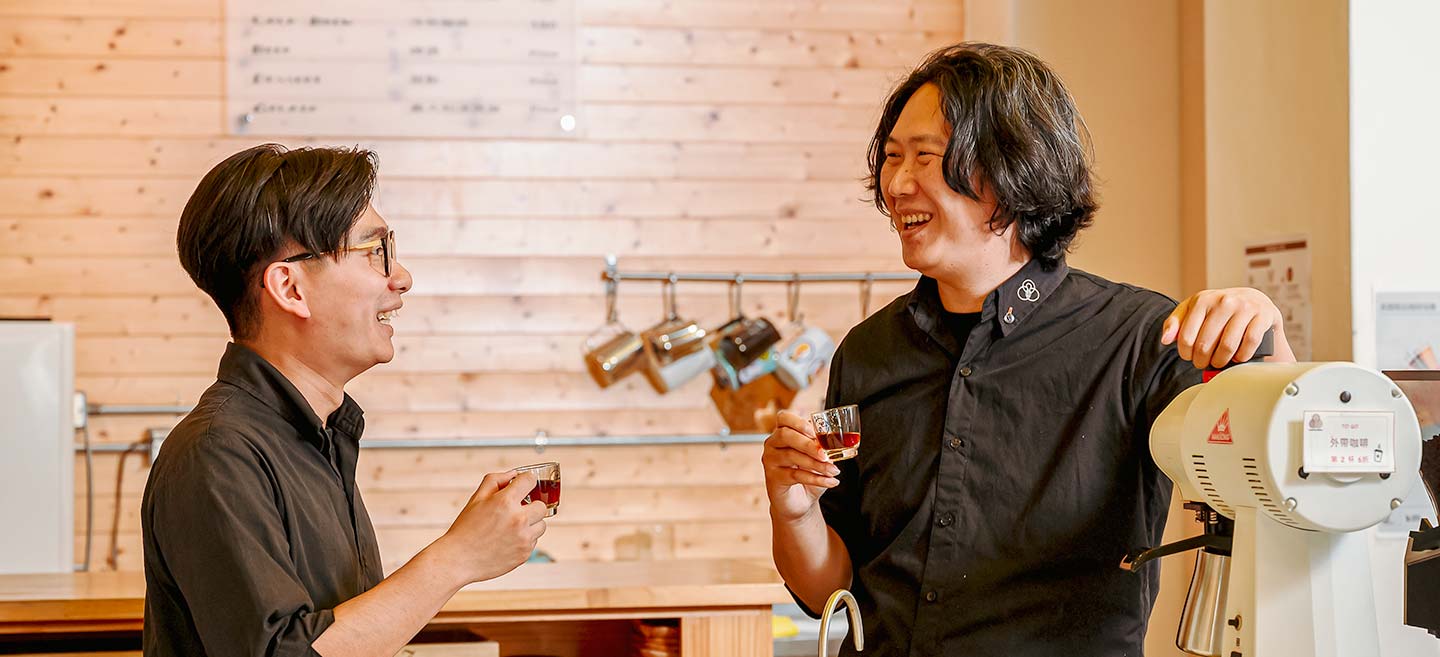

The ancient city of Tainan, Taiwan, is surrounded by historical buildings and nostalgic streetscapes. Its charm is comparable to that of Italy’s Milan or Japan’s Kyoto and is a must-see destination for any traveler. The city is also famed for its rich food culture and many visitors flock here with the aim of indulging in the array of culinary delights.
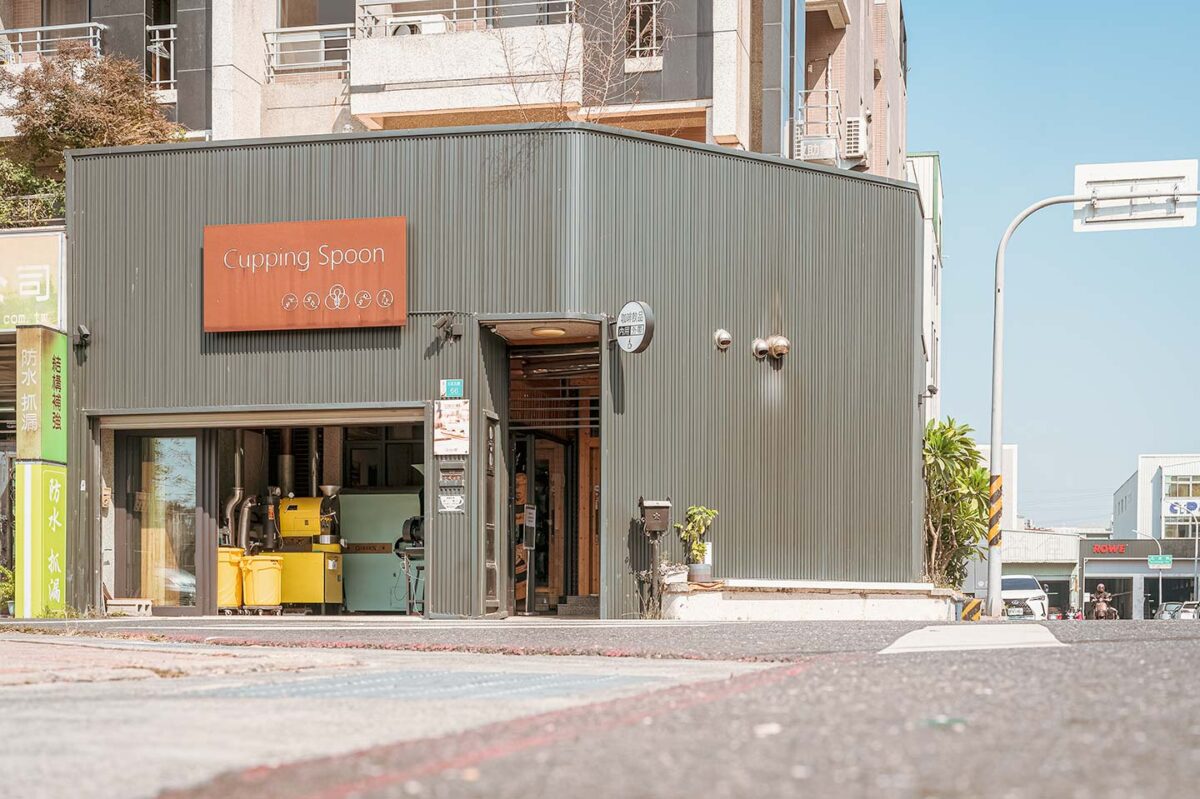
Cupping Spoon can be found in a quiet residential area of the city. Founded in 2013 when specialty coffee was still a novelty in Tainan, Cupping Spoon began as a way to communicate the appeal of coffee to consumers through educational opportunities.
They have since pivoted to focus on providing training for coffee professionals, with around 100 students a year studying at the Coffee Spoon College. Graduates of the training program include a winner of Taiwan’s World Cup Tasters Championship (WCTC/Taiwan), and three times top-tier placements in the World Brewers Cup in Taiwan (WBrC/Taiwan).
We spoke to Vincent Chung, the founder, and Kevin Kao, store manager and person in charge of bean sourcing and roasting, to learn more about Cupping Spoon’s coffee research lab philosophy, and their goals.
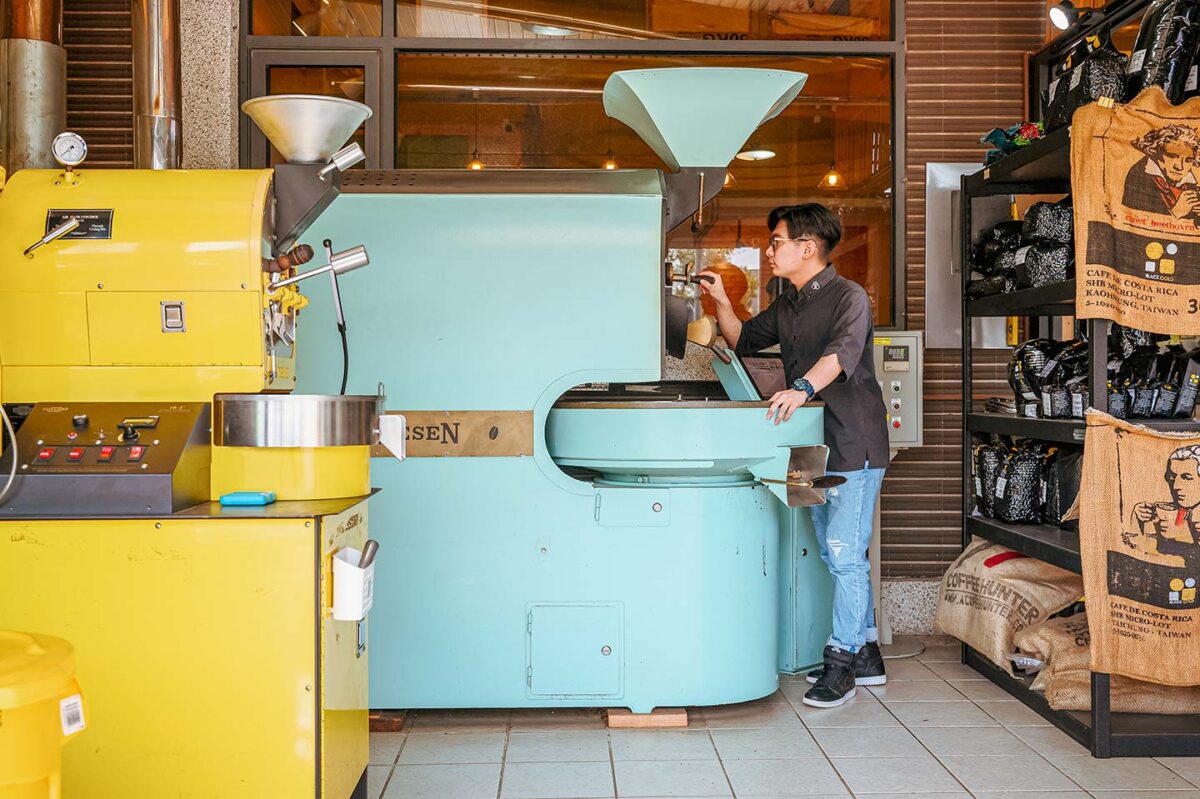
Quality is our core value
For coffee consumers, opportunities to experience coffee as an agricultural product are rare. Unlike fruit and vegetables, coffee does not appear on store shelves in the same form as when it was harvested. Through pulping, processing, roasting, and brewing, coffee undergoes a complete transformation from the picked coffee cherry to the served-up cup of joe. Even roasting, which is the process nearest to the consumer, is often invisible.
Which is why Cupping Spoon’s design is so unique. Unlike most roaster cafes, the interior of Cupping Spoon’s glass-walled roastery is visible to everyone passing by the shop on foot or by car, while the cafe is tucked in the back and features a cozy, home-from-home aesthetic.
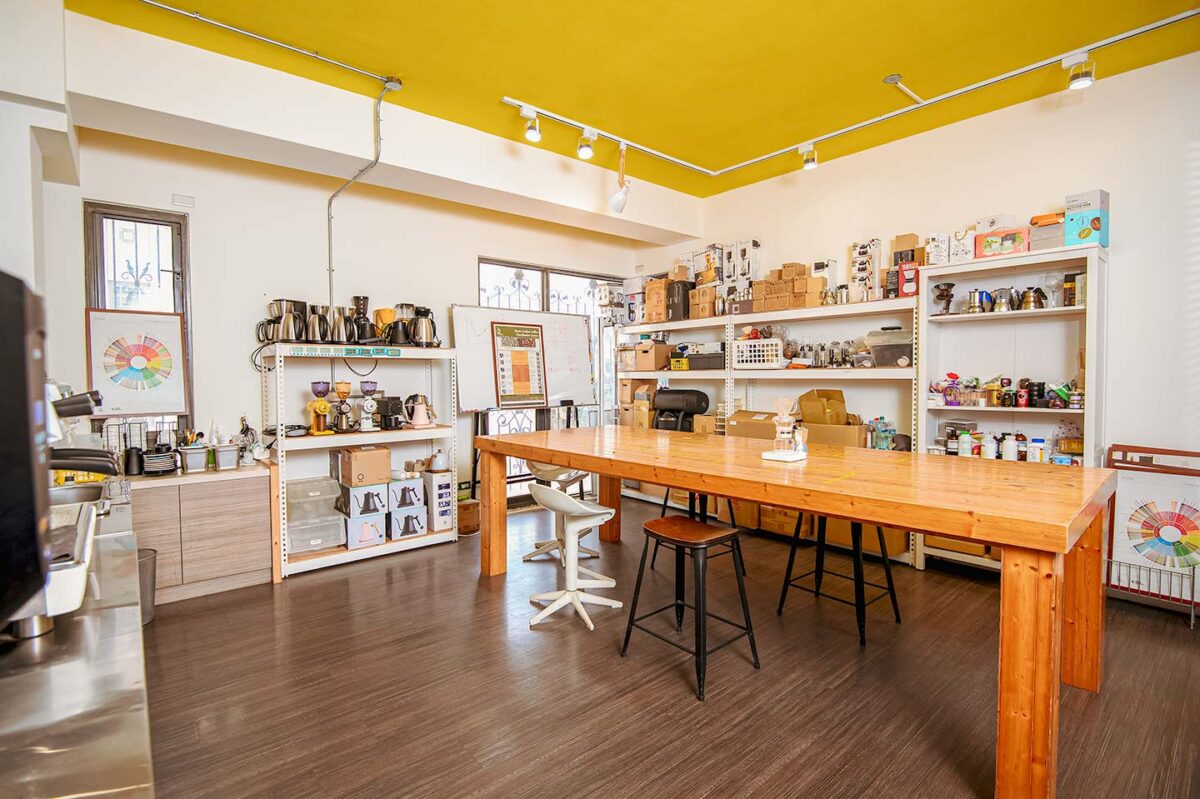
Kevin: “Putting the production part on display instead of hiding it in the back allows us to emphasize our role as professionals skilled in our craft, who are intent on making the best cup of coffee every time.”
Cupping Spoon, which also functions as a trading company, is involved in every stage of the supply chain from importing and selling green beans, to roasting and operating a cafe. Another distinctive feature is their diverse array of training programs, which are recognized by the Specialty Coffee Association (SCA). The building that they rent has a second floor equipped with rooms for practical and lecture-based lessons.
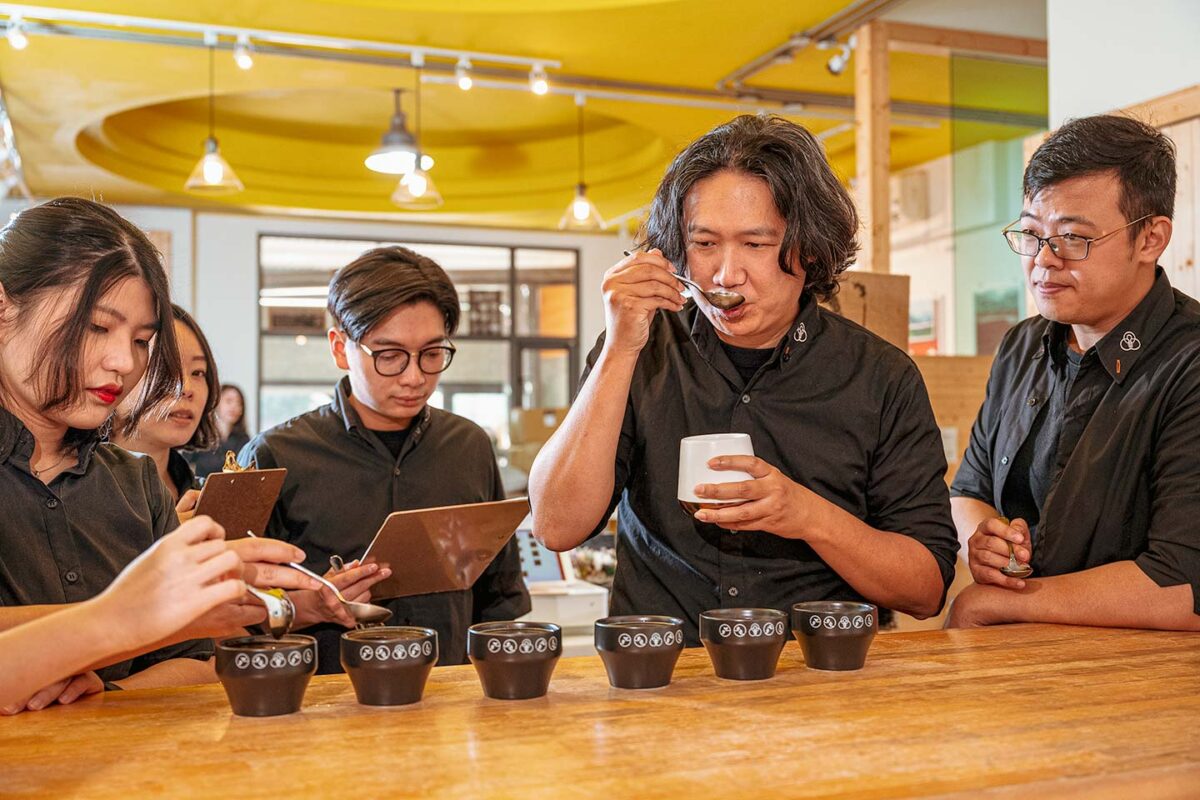
Vincent: “Cupping Spoon’s strength is our specialist expertise. We’re competing on the quality standard of our flavor and training. Our customers trust and love our flavor. It’s not that we don’t need marketing, more that our core value is in our cupping skill.
Customers who trust in our flavor will then spread the word to other people. We’re not in an industrial area or a tourist spot. It’s not easy to get to or anywhere you’d be passing by. The majority of people who come to Cupping Spoon come here with the intention of visiting us and trying our coffee.”

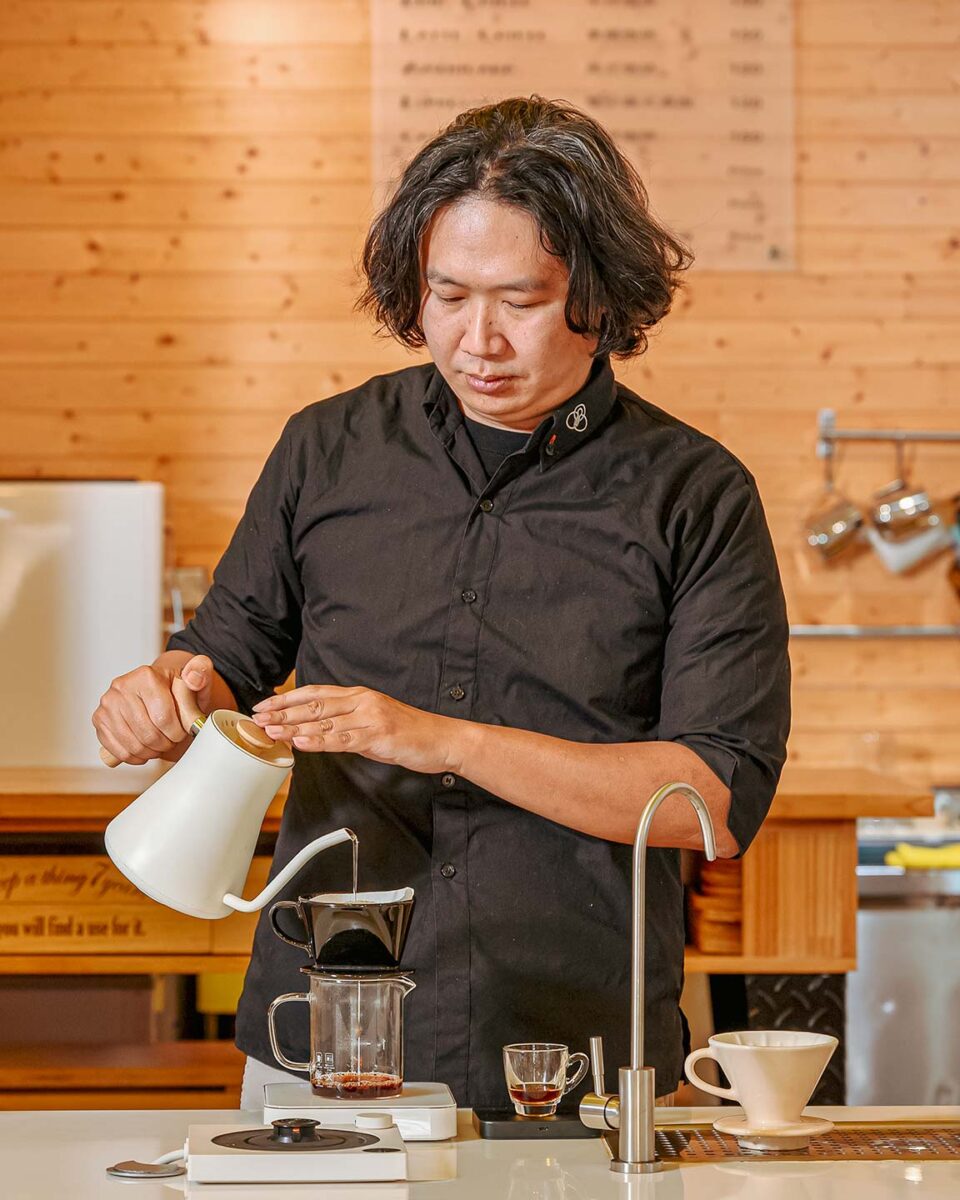
Learning a love of coffee through learning
After finishing graduate school, Vincent worked at a major Taiwan food company on coffee research and training. There he was able to see the changing trends in the public’s demand for coffee. People were no longer satisfied with regular or instant cheap consumer coffee. Instead there was a growing need for higher quality, better tasting coffee. Vincent saw a business opportunity. He founded Cupping Spoon in 2013 with the aim of promoting single origins, a coffee that can highlight the unique characteristics of different production regions.
However, the specialty coffee industry in Taiwan was still in its early days. Vincent realized that it would take a while before people were ready for something new. He decided to pour his energy into educating the consumer. For Vincent, who had also worked as a trainer at SCA’s predecessor organization (SCAA), it was the natural next step.
He established two programs: a cupping program to hone tasting skills, and a home-barista program which taught customers how to make quality coffee at home. He presented each of these hands-on sessions once a week, working to boost interest in coffee through learning. As a result, he began to gradually build a base of regular customers.
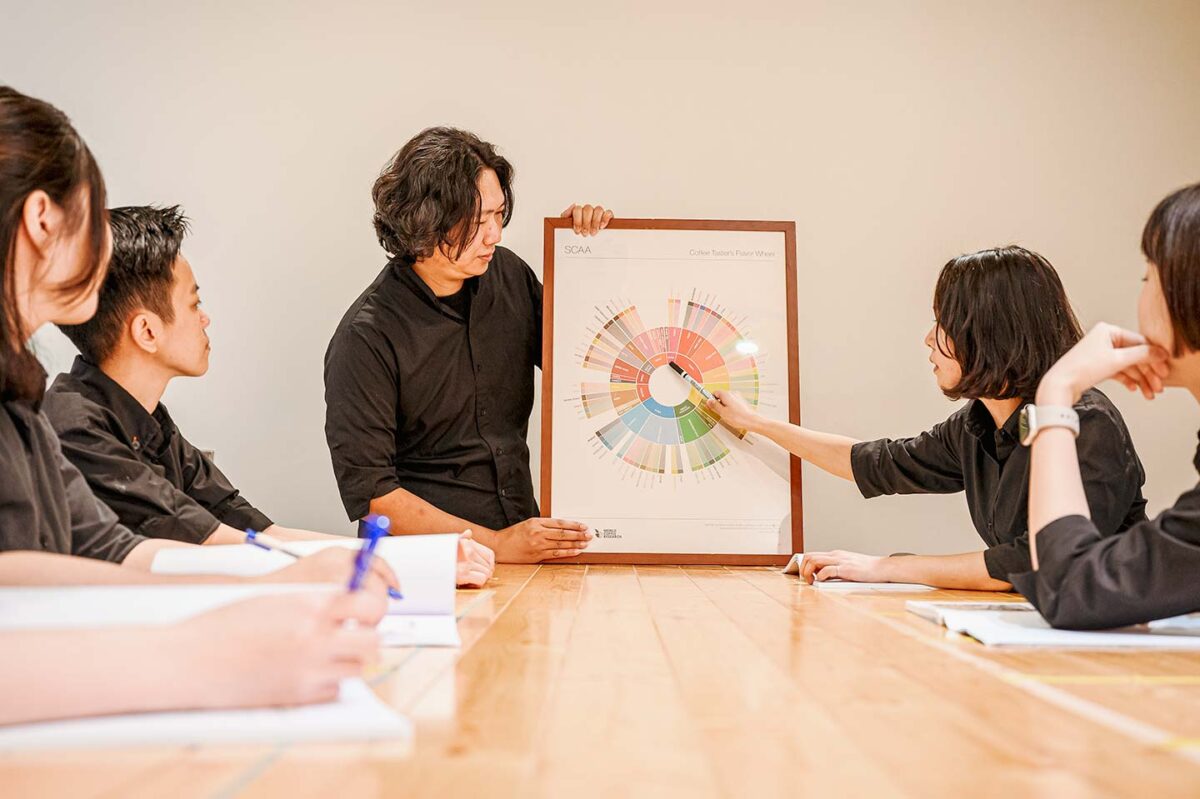
Ten years later and as opportunities to gain knowledge on coffee have increased, and there are more options for quality beans, the Taiwan coffee specialty coffee market is still expanding. According to Vincent, opening a cafe has become a bit of a trend.
The year after founding Cupping Spoon, Vincent began organizing training programs for professionals, increasing sessions to two to three times a month. Participants are people planning to open a coffee shop, or compete in a coffee competition. Currently, the majority of training is aimed at professionals.
“We’re seeing lots of cases where people have been drawn to coffee from totally unrelated industries, and opening a coffee shop is a way to realize their dream. Of course, they need to make a profit to live, but the majority of people began from a love of coffee. And there’s also the aspect of creating something new which appeals to a lot of people too.”
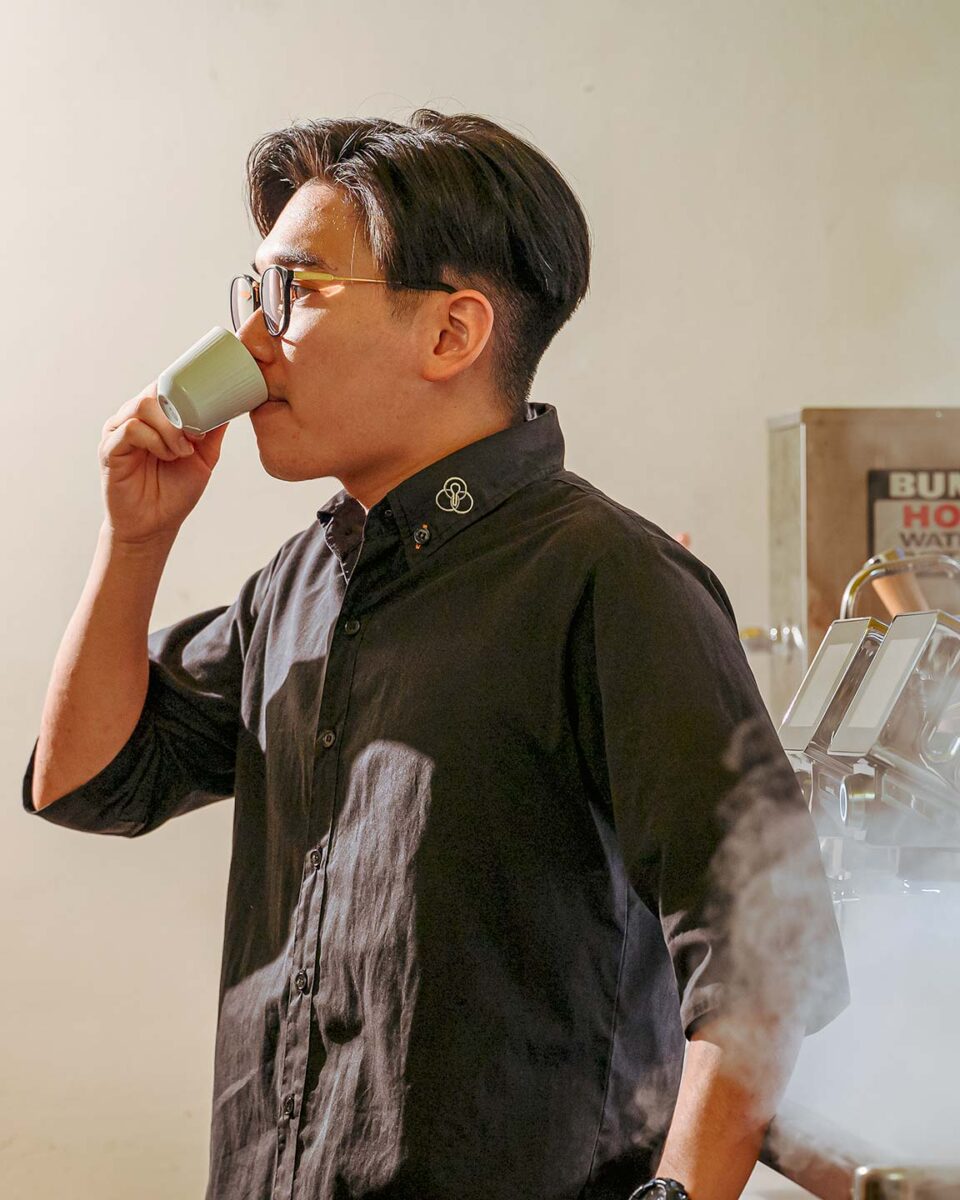
Most of the staff at Cupping Spoon joined as a result of taking part in a training session. One of these is Kevin, who joined after graduating university. A central figure at Cupping Spoon, Kevin has been working at the company for six years and in addition to managing the store, is also a trainer in espresso making and latte art.
Kevin: “The biggest difference between Cupping Spoon and other businesses is the speed with which we update our coffee knowledge. The knowledge and experience I’ve gained from dedicating myself to learning is a valuable asset, and having that motivates me to continue. So it’s less that I’m not interested in other industries, but more that building up a new knowledge base from scratch would mean all this effort would go to waste. My goal after graduating university was to own my own cafe but now, I’m more like, as long as I’m working in coffee, I don’t have to limit myself to a cafe.”
Vincent: “What we offer here is a life experience. Serving coffee is not the only way to develop and evolve the industry. Learning about coffee, as people do here, is also a way to be more interested and aware.”

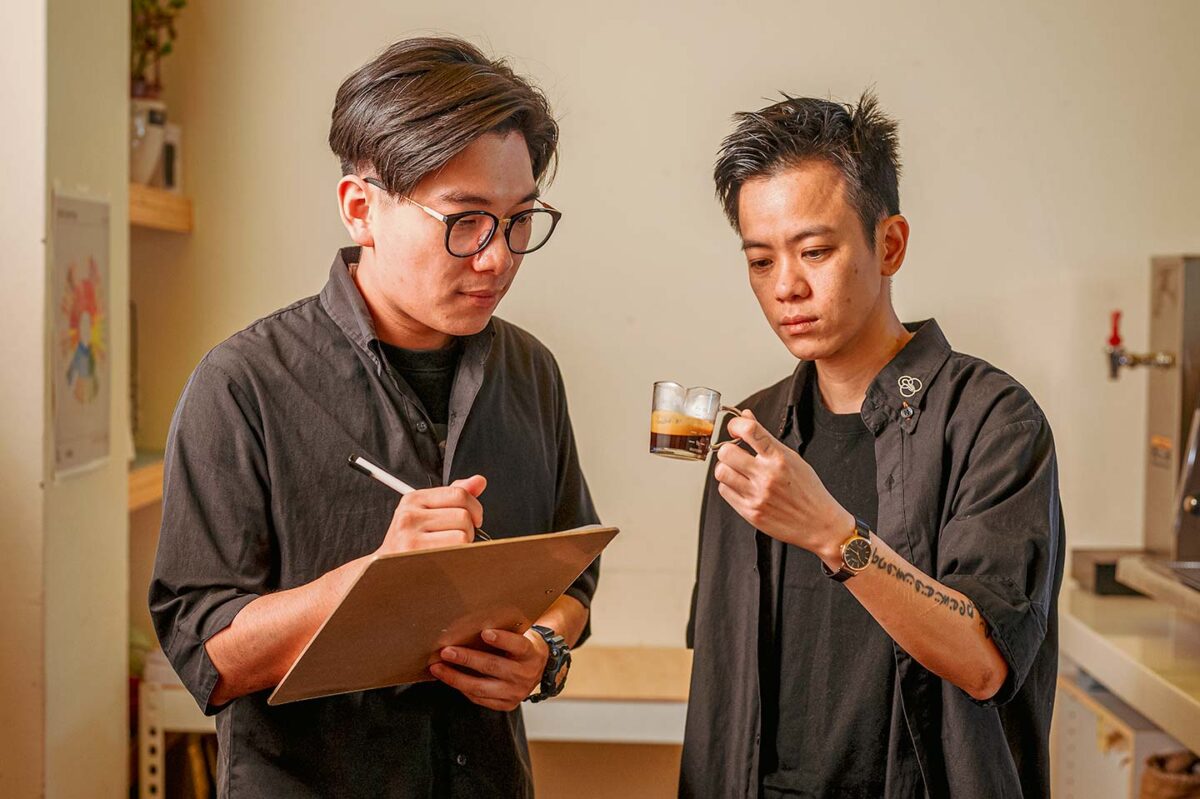
Taking the initiative for optimized performance
The working environment at Cupping Spoon encourages staff to take the initiative. Each member is assigned to a specific customer or client, and performance-based incentives are also provided. Rewarding people in accordance with how much work they put in allows staff to feel aware of their contribution to the company. Removing restrictions on job roles also means that staff can polish their sales and negotiation skills – handy for if they decide to go into business on their own.
Cupping Spoon opts for a flexible employment structure, not limited to a traditional style of employment or role, allowing them to use their resources to the full potential. After leaving Cupping Spoon to set up their own business, former staff members will still come back and volunteer at the cafe as a way to upskill. Those working as freelancer trainers come back to present a pop-up training session, and others who went into trading might sell Cupping Spoon products.
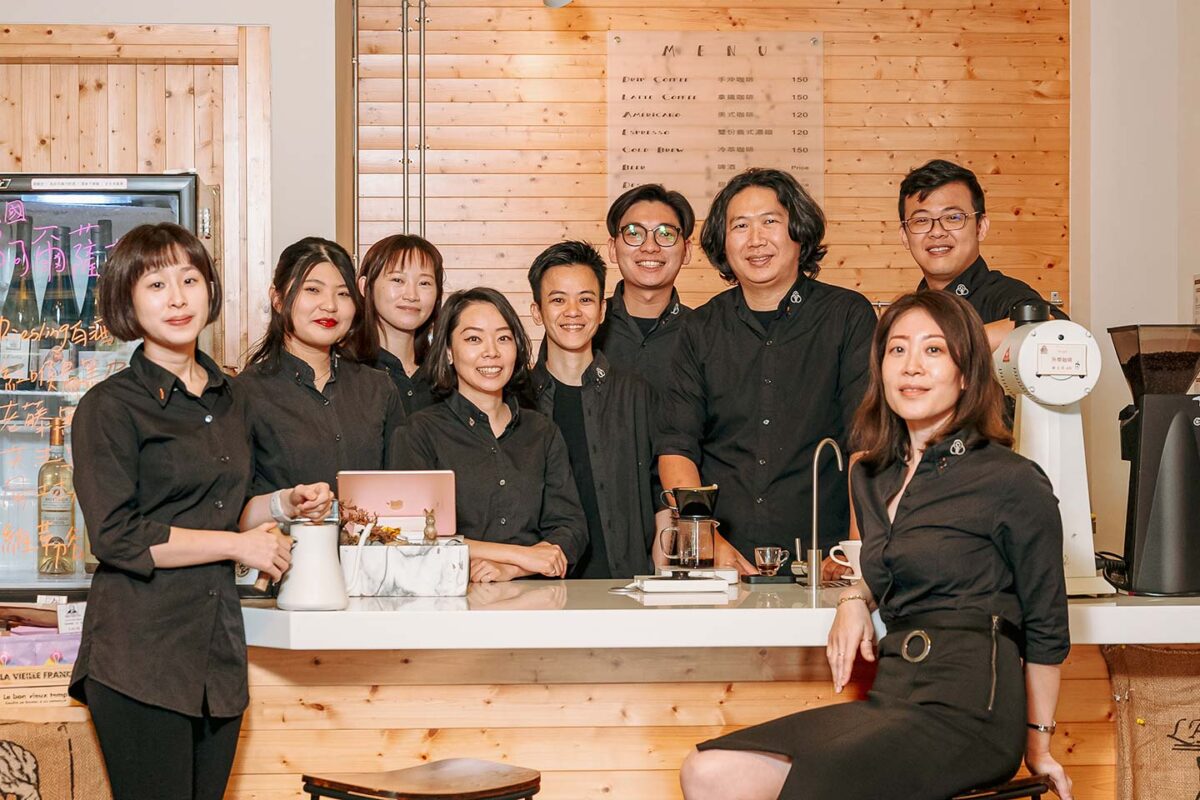
“We don’t think of former staff as rivals or enemies. If they choose to open up a cafe, we’d supply them with the beans so it’s a win-win. That’s the advantage of being involved in every stage of the coffee supply chain.
And anyway, when you look at the coffee market in Taiwan, the specialty coffee market is tiny. Most consumers are still buying commercial coffee from the supermarket. The market size, in terms of circulation value, is several hundred times larger than that of specialty. When you look at that, you understand that we shouldn’t be competing among ourselves and there’s more than enough room for growth.”
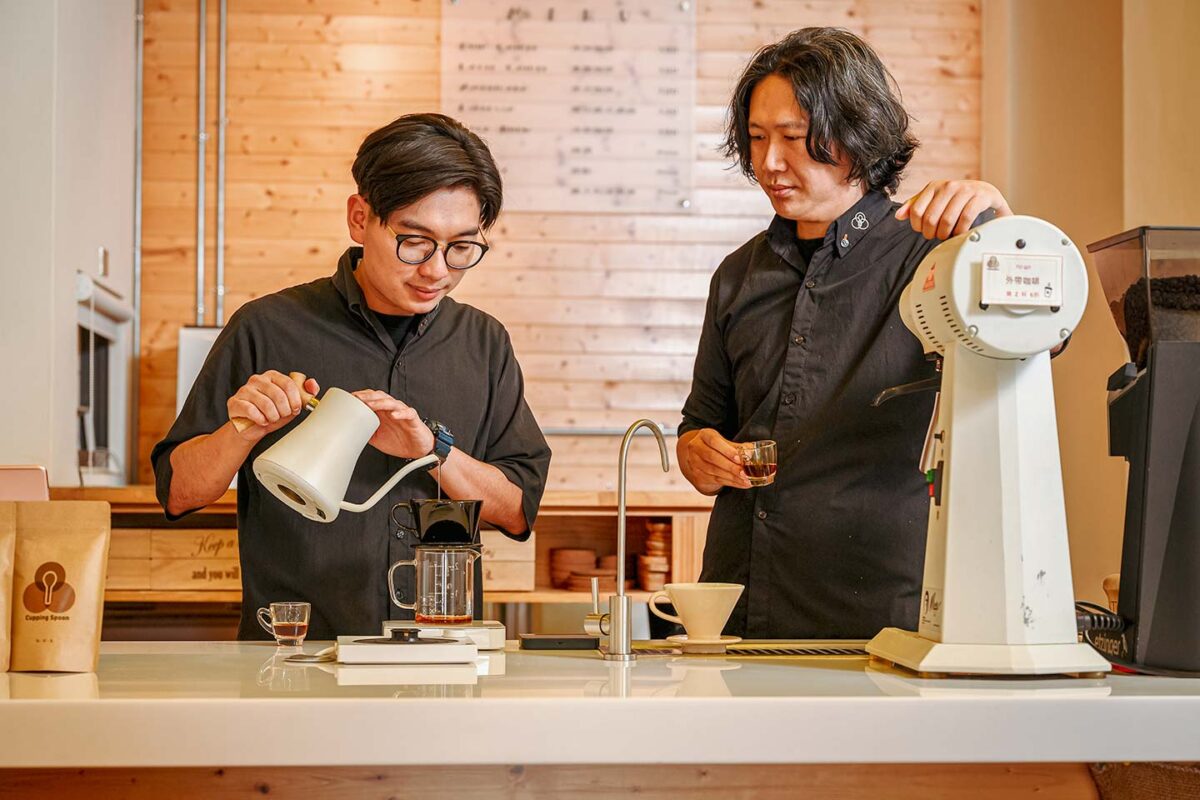
Cupping Spoon also encourages staff to participate in competitions which test brewing, tasting and other coffee techniques. They believe these provide an opportunity to improve skills.
“If you take part in a competition, your approach to coffee changes. If you want to make a mark in a competition, then it’s not enough to just attend our courses a few times. It requires dedication and discipline to practice on your own. Competitions are great not only for helping you grow, but also as a way to make connections in the industry, which you’ll need if you decide to open up a store later on.”

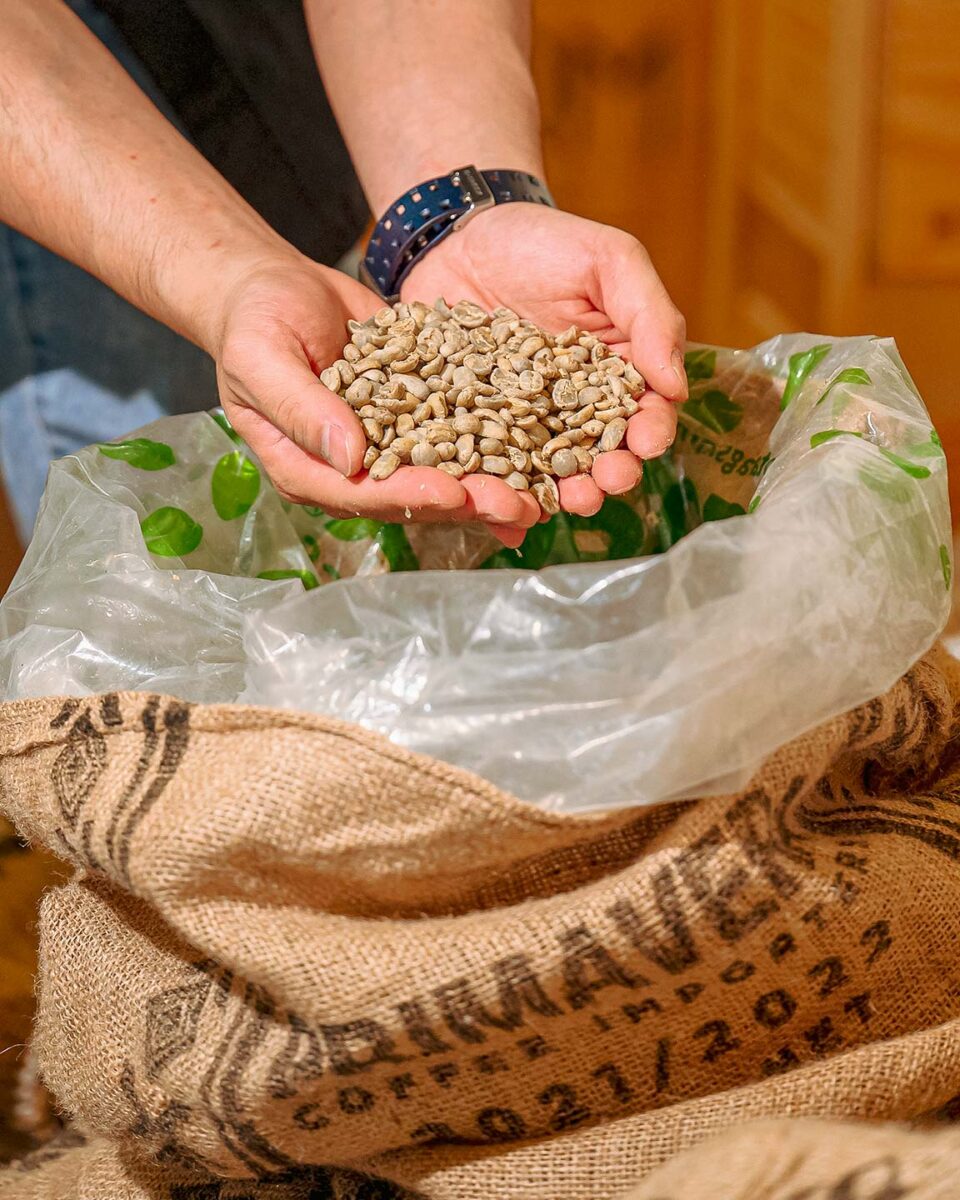
Finding solid partnerships through direct trade
Vincent learned trading from a Japanese trading company, and then started direct trade with producers in Costa Rica and Panama. He visits the locales every year and purchases directly from producers through local partner companies.
“A lot of the information out there on green beans is unreliable, so it’s difficult to judge their quality. Sometimes, you’ve bought beans and it’s not until you collect them that you realize the quality is not up to scratch. But if you go to the producer’s farm, meet them, and cup the coffee, you can be assured of the quality you are getting. Direct trade also allows you to let the producer know what your preference is.
The best way to support producers is to pay high prices for high-quality beans. If their income increases, they can invest more, their motivation will improve and this will lead back to increasing their income and so on. In this day and age, a small-scale business like ours can also function as a trading company. And being small has the advantage of offering a more tailored, personalized response.”
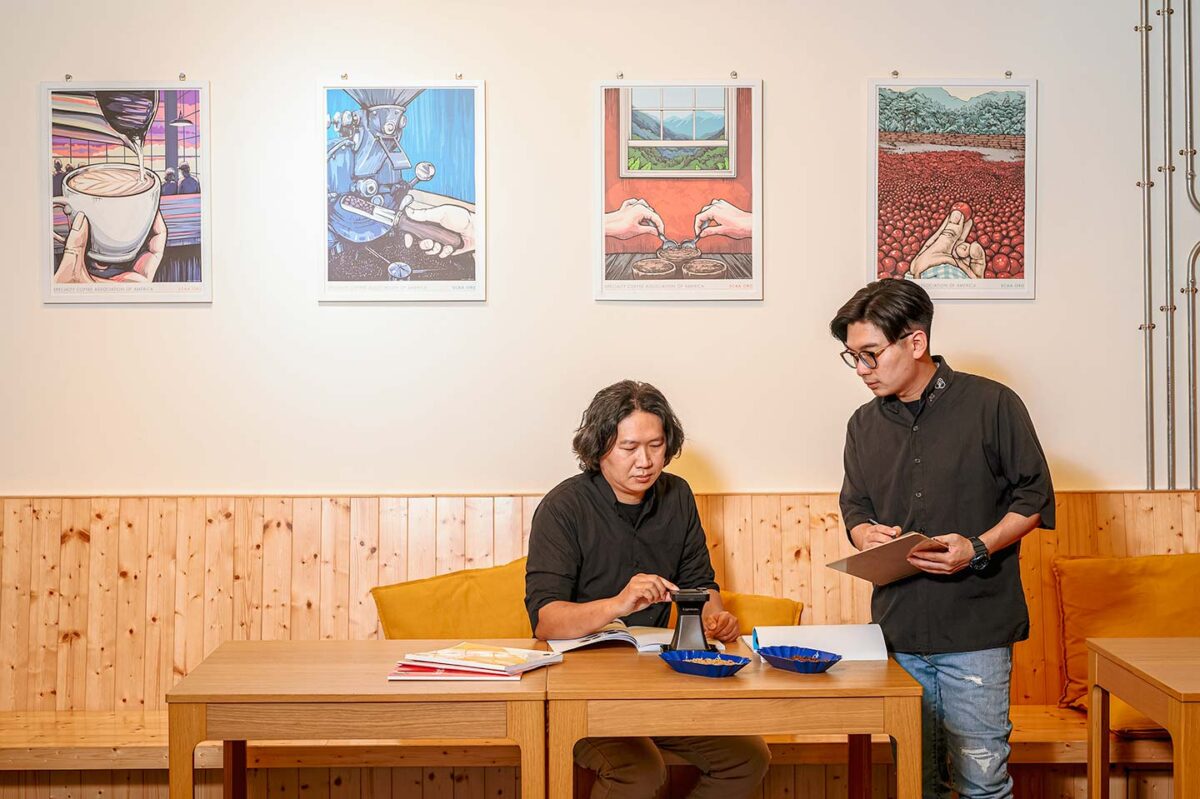
In Costa Rica, there are producers who have been able to make significant improvements to their living standards since trading with Cupping Spoon. In 2017, the economic climate was difficult and many producers did not have sufficient infrastructure for production. A loan from Cupping Spoon allowed them to purchase new equipment, which led to an improvement in quality. As a result they were able to build a grand house, and pay for music lessons for their children.
“Being able to make that kind of impact is what gives our work meaning. On the other side of our coffee are producers who are working to grow good beans. It’s our desire to help them that motivates us to make even better coffee.”
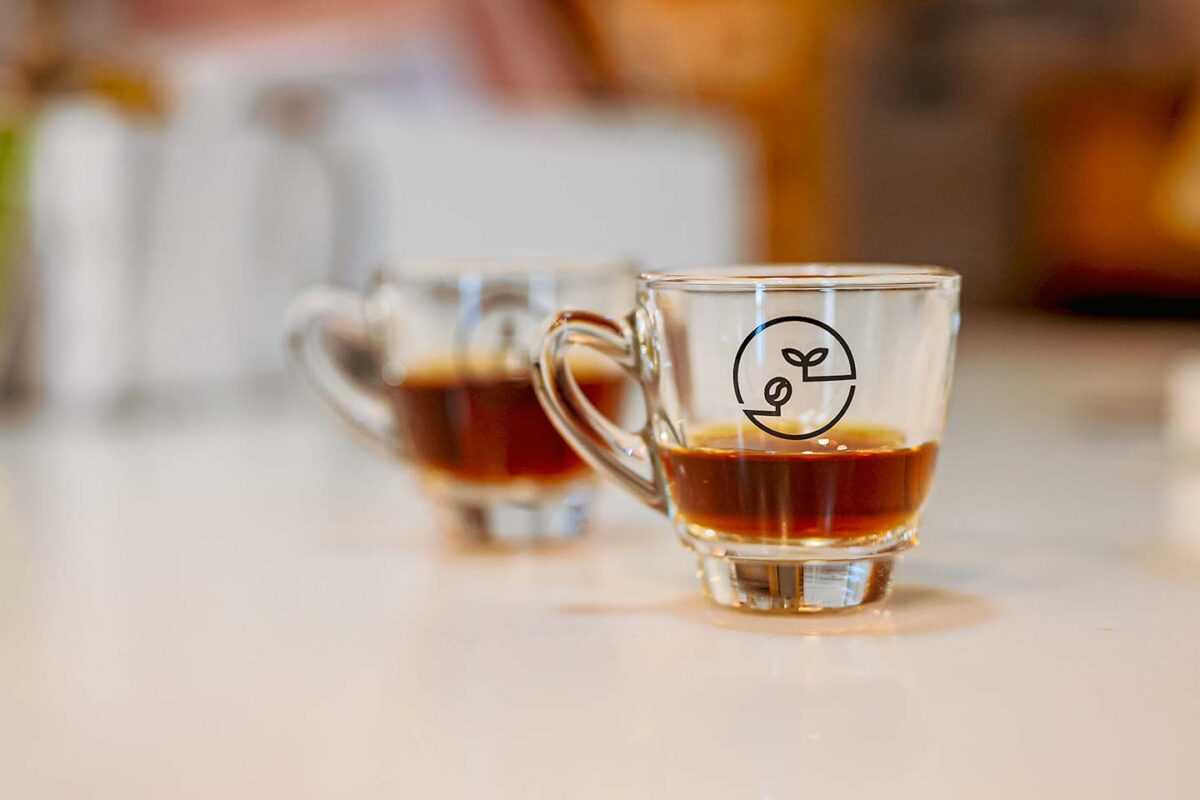
The more we learn, the more we grow
After finishing graduate school, Vincent’s life took a turn when he began researching coffee at a food company. He found himself captivated by the complex world of coffee and for 20 years has continued on the same path.
“When I first founded Cupping Spoon, my goal was just to make delicious coffee, one cup at a time. And thanks in part to the very selective tastes and discerning palate of the people in Tainan, I was able to succeed. We were gradually able to gain more customers over time.
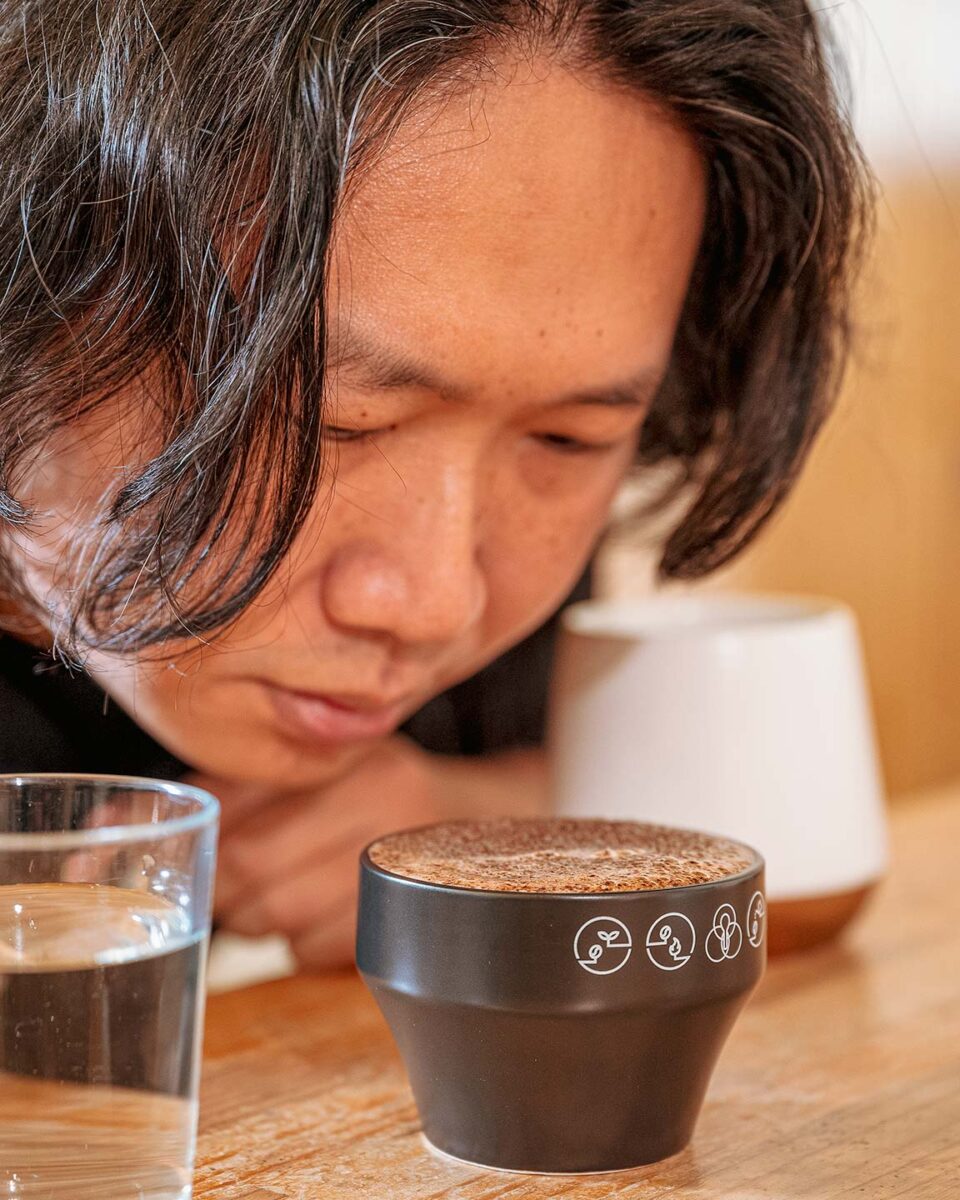
There’s a quote about Antoine Saint-Exupéry: “If you want to build a ship, don’t drum up the men to gather wood, divide the work, and give orders. Instead, teach them to yearn for the vast and endless sea.” The desire to know more about the wider world is mainly inspired by learning.
Our industry is changing at a remarkable speed. When I first got into coffee, just finding one type of specialty coffee was enough. But now, there’s so much diversity with different varieties, processing methods, and individual characteristics of farms and producers. This industry is constantly giving birth to new innovations and creation. It’s exciting to see where it will go next.”
Text: Tatsuya Nakamichi
MY FAVORITE COFFEE
Kevin: My favorite coffee is the one I make for my parents on my day off. It might be hard to believe, but I started this job because I wanted to make delicious coffee for my parents. They can't drink much coffee now because of their health, so sharing that coffee with them makes the time even more precious.
Vincent: I feel happiest when I discover new coffee flavors. When I had a Geisha in Taiwan, back when specialty coffee was still a rarity here, I fell in love with the fresh flavor. It’s the same when I go to coffee-producing regions: I always get excited when I discover something unexpected. It makes me want to introduce it to Taiwanese customers and share the amazing flavor with them.
